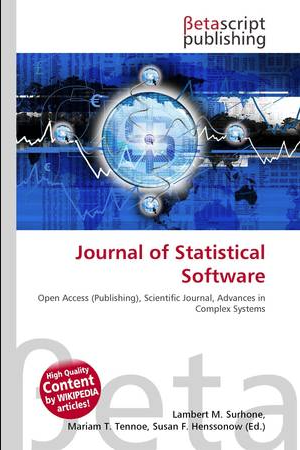The R Package forestinventory: Design-Based Global and Small Area Estimations for Multiphase Forest Inventories
IF 8.1
2区 计算机科学
Q1 COMPUTER SCIENCE, INTERDISCIPLINARY APPLICATIONS
引用次数: 5
Abstract
Forest inventories provide reliable evidence-based information to assess the state and development of forests over time. They typically consist of a random sample of plot locations in the forest that are assessed individually by field crews. Due to the high costs of these terrestrial campaigns, remote sensing information available in high quantity and low costs is frequently incorporated in the estimation process in order to reduce inventory costs or improve estimation precision. With respect to this objective, the application of multiphase forest inventory methods (e.g., double- and triple-sampling regression estimators) has proved to be efficient. While these methods have been successfully applied in practice, the availability of open-source software has been rare if not non-existent. The R package forestinventory provides a comprehensive set of global and small area regression estimators for multiphase forest inventories under simple and cluster sampling. The implemented methods have been demonstrated in various scientific studies ranging from small to large scale forest inventories, and can be used for post-stratification, regression and regression within strata. This article gives an extensive review of the mathematical theory of this family of design-based estimators, puts them into a common framework of forest inventory scenarios and demonstrates their application in the R environment.R包森林清查:基于设计的多阶段森林清查全局和小面积估算
森林清查为评估森林的长期状况和发展提供了可靠的循证信息。它们通常由森林中随机取样的小块地点组成,由实地工作人员单独评估。由于这些地面活动的成本很高,为了减少库存成本或提高估算精度,经常将数量多、成本低的遥感信息纳入估算过程。关于这一目标,采用多阶段森林清查方法(例如,双抽样和三抽样回归估计器)已证明是有效的。虽然这些方法在实践中得到了成功的应用,但开源软件的可用性即使不是不存在,也是很少的。R包森林清查为简单和聚类抽样下的多阶段森林清查提供了一套全面的全局和小区域回归估计。所执行的方法已在各种科学研究中得到证明,范围从小型到大型森林调查,并可用于分层后、回归和地层内回归。本文对这类基于设计的估算器的数学理论进行了广泛的回顾,将它们放入森林清查场景的通用框架中,并演示了它们在R环境中的应用。
本文章由计算机程序翻译,如有差异,请以英文原文为准。
求助全文
约1分钟内获得全文
求助全文
来源期刊

Journal of Statistical Software
工程技术-计算机:跨学科应用
CiteScore
10.70
自引率
1.70%
发文量
40
审稿时长
6-12 weeks
期刊介绍:
The Journal of Statistical Software (JSS) publishes open-source software and corresponding reproducible articles discussing all aspects of the design, implementation, documentation, application, evaluation, comparison, maintainance and distribution of software dedicated to improvement of state-of-the-art in statistical computing in all areas of empirical research. Open-source code and articles are jointly reviewed and published in this journal and should be accessible to a broad community of practitioners, teachers, and researchers in the field of statistics.
 求助内容:
求助内容: 应助结果提醒方式:
应助结果提醒方式:


